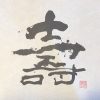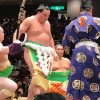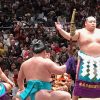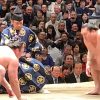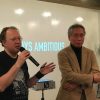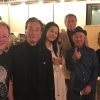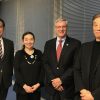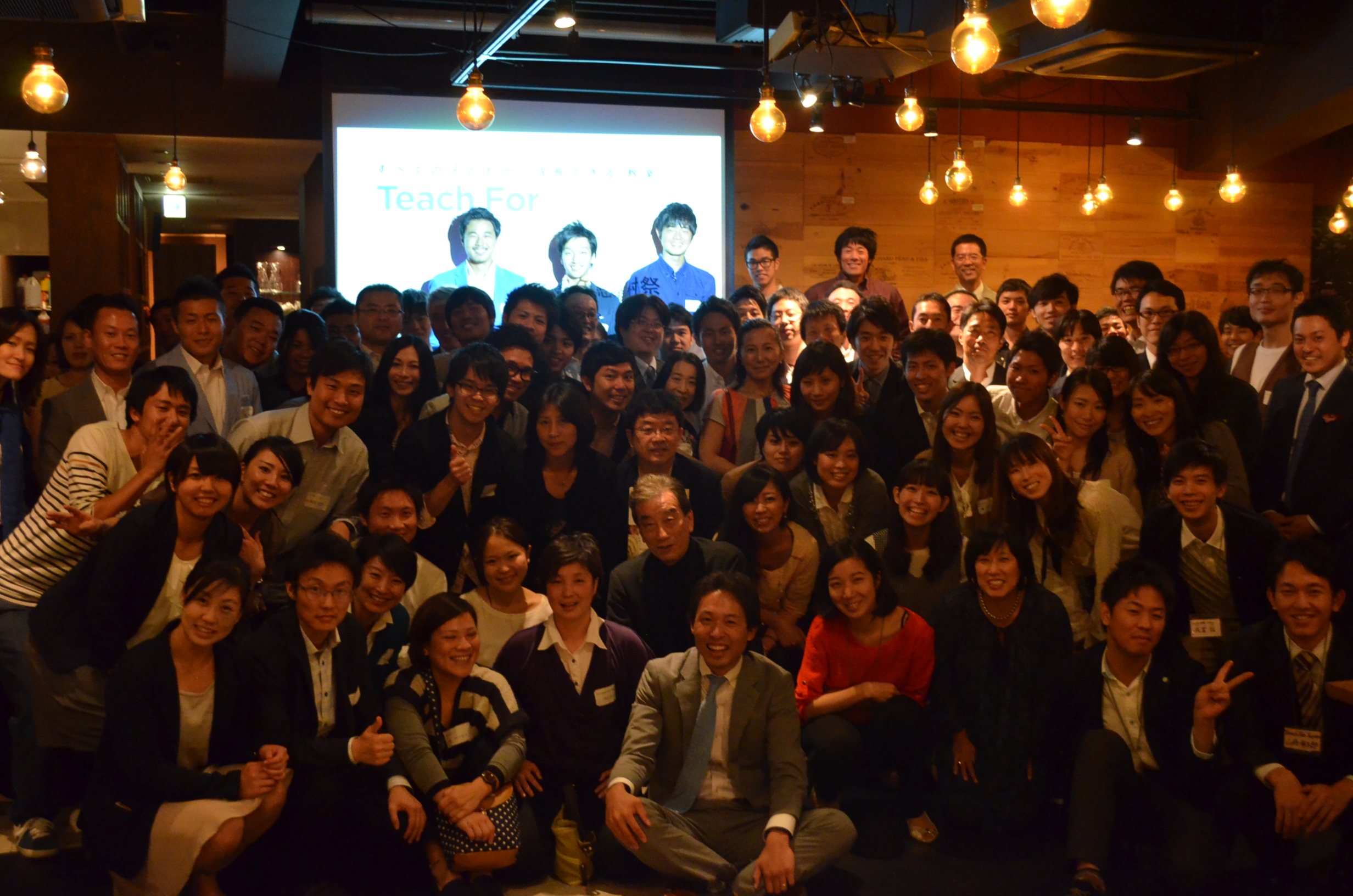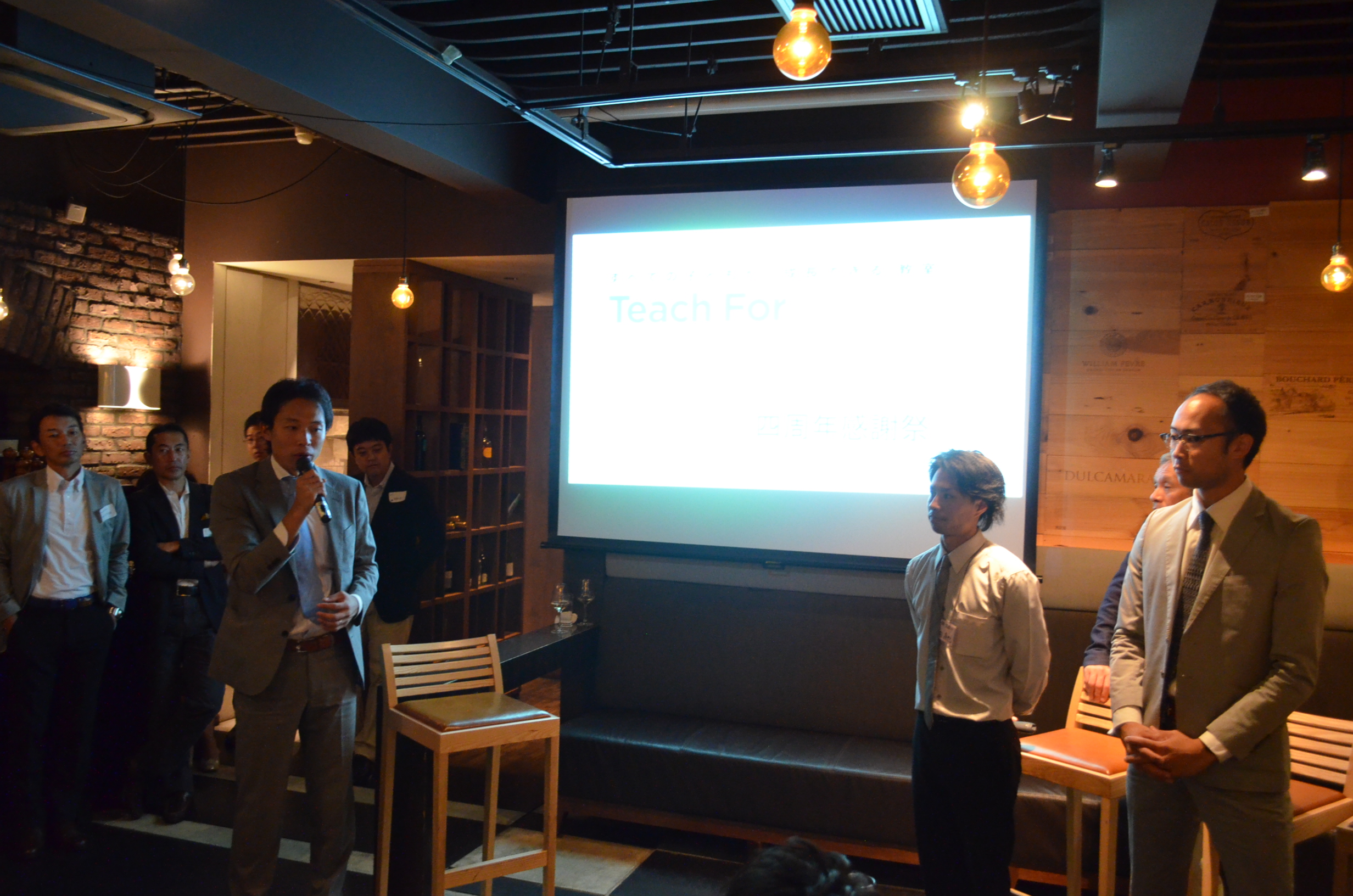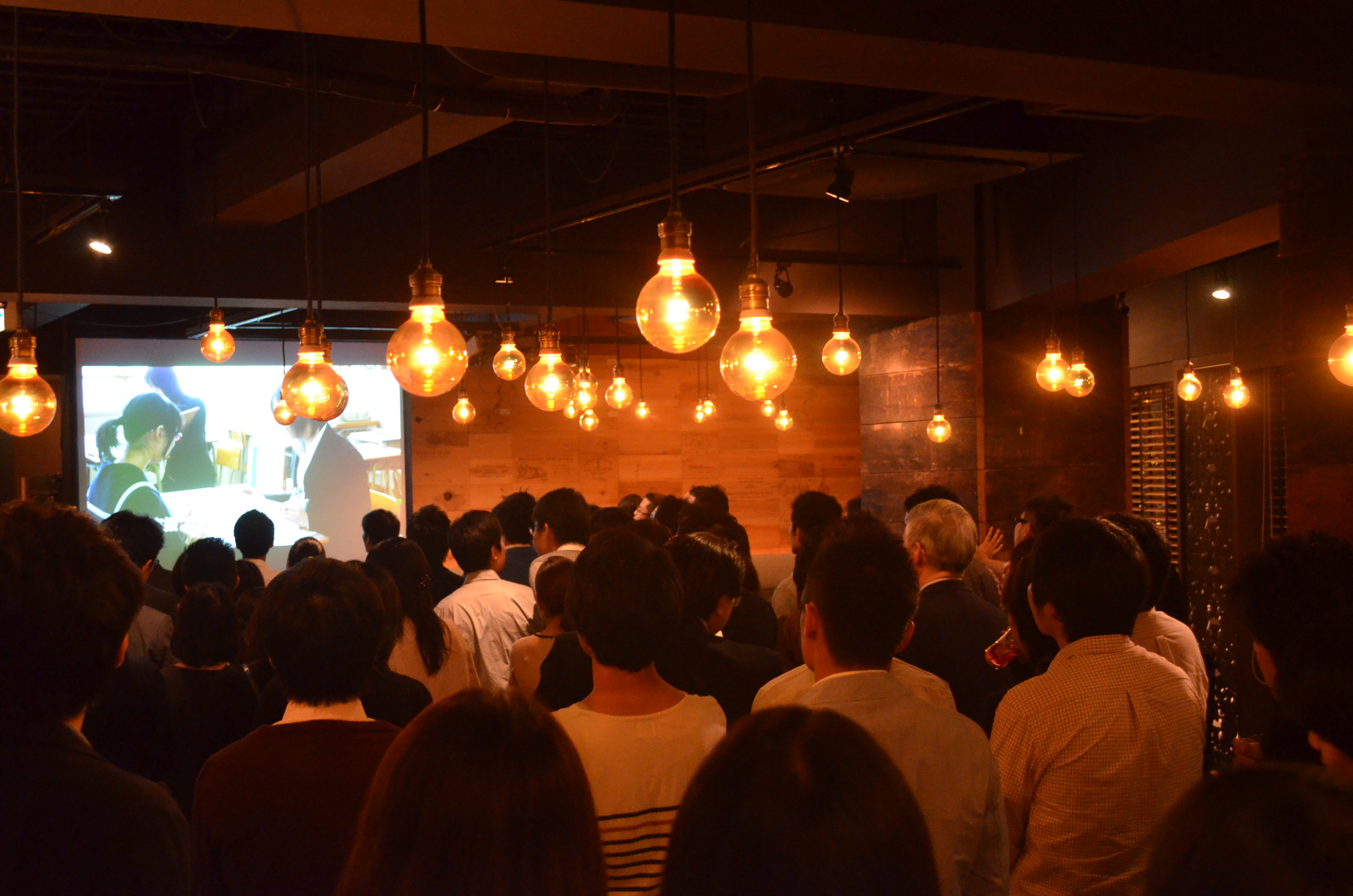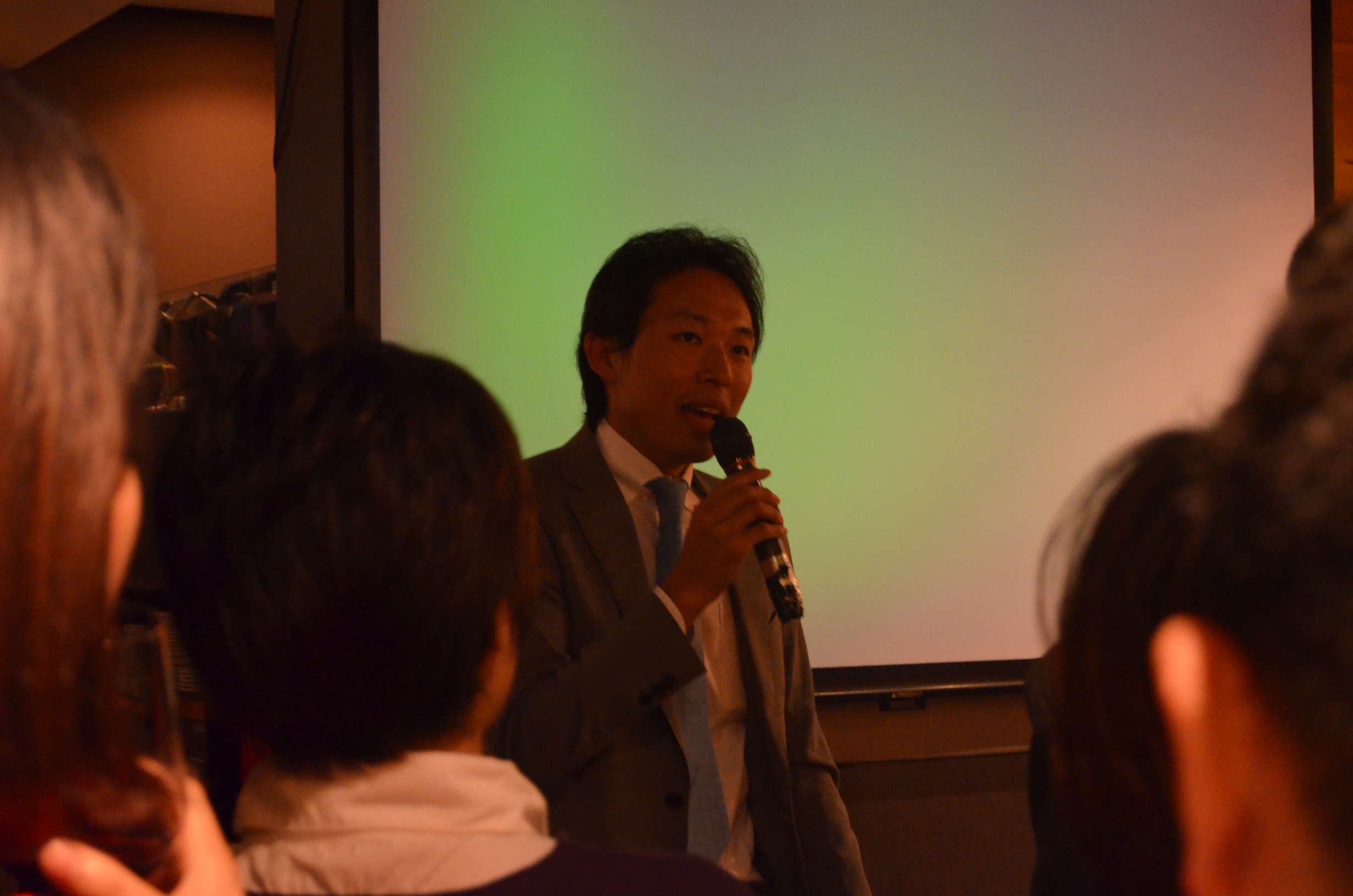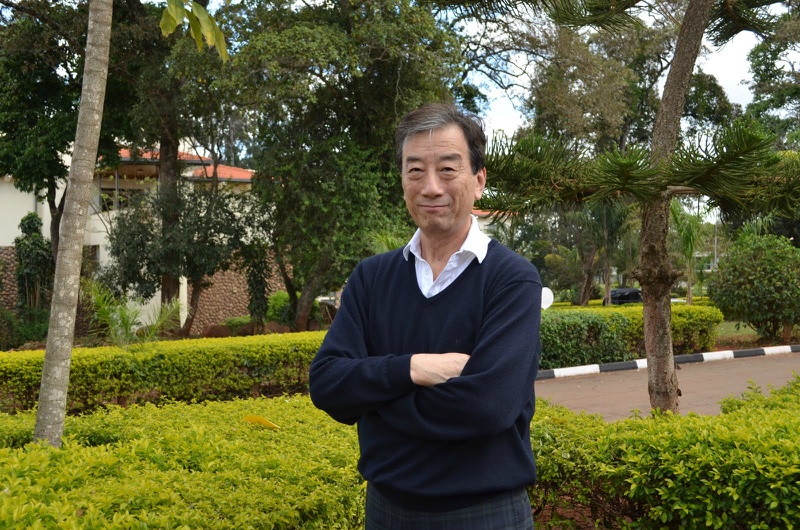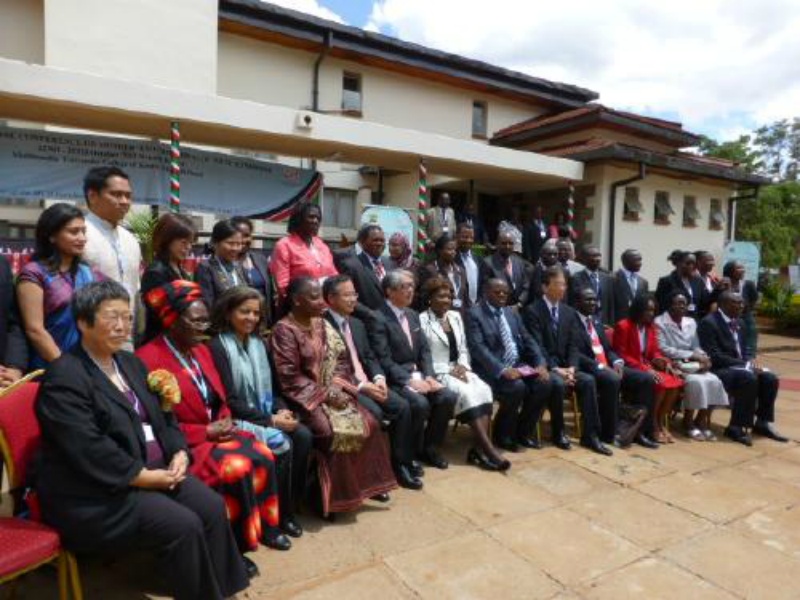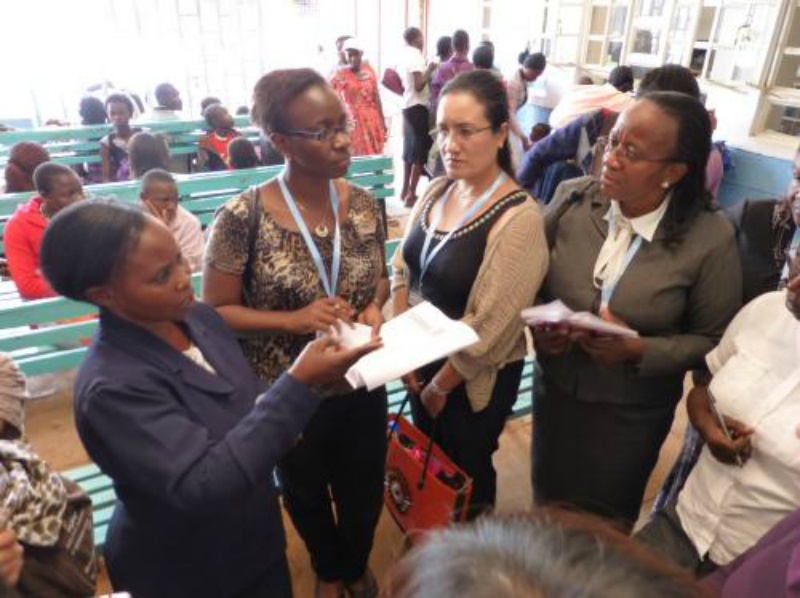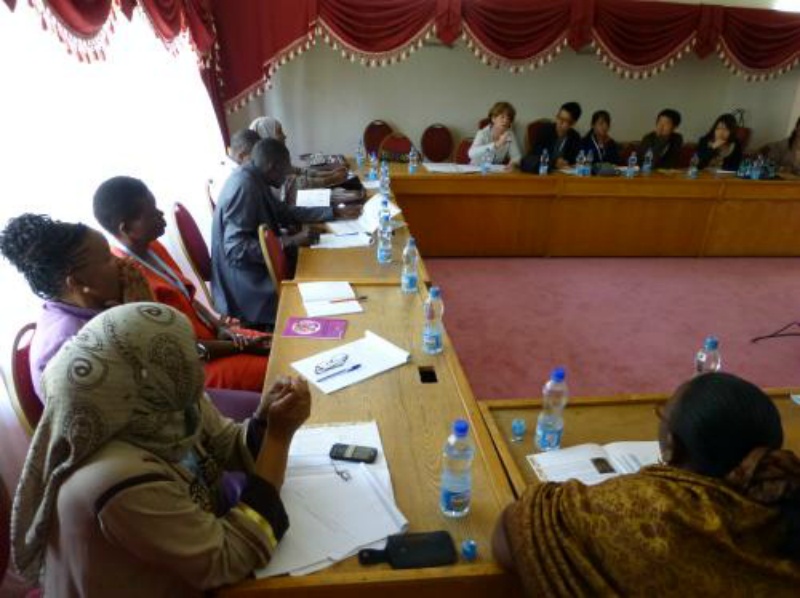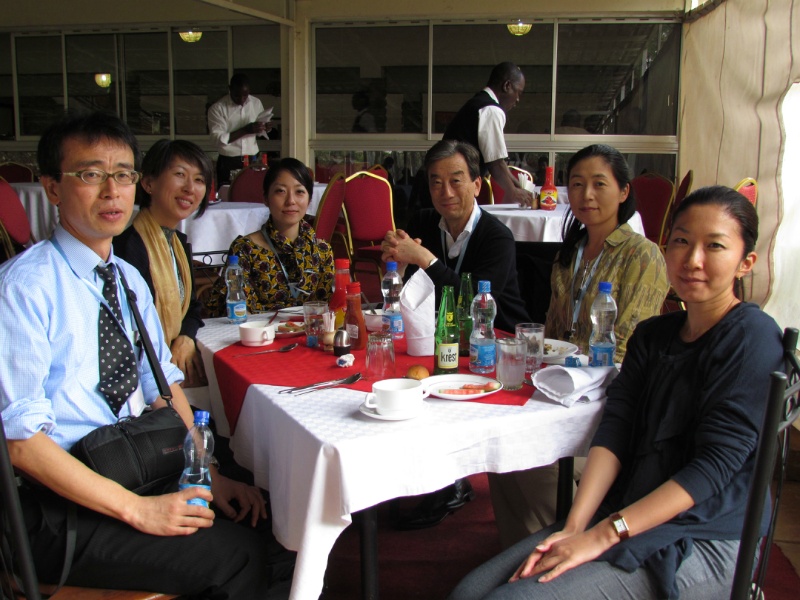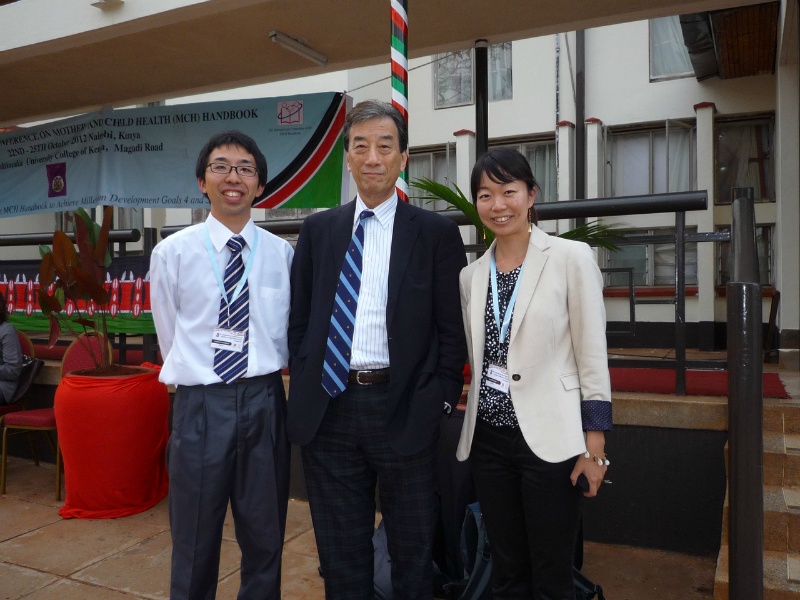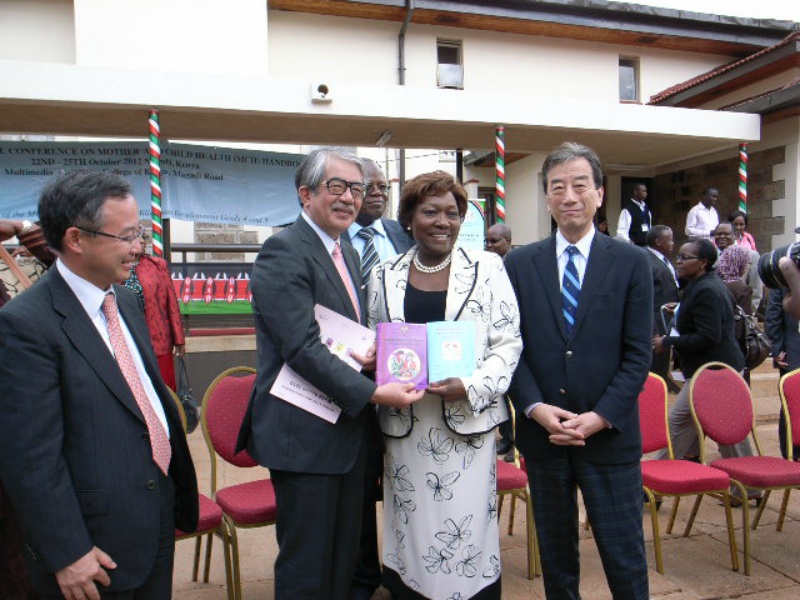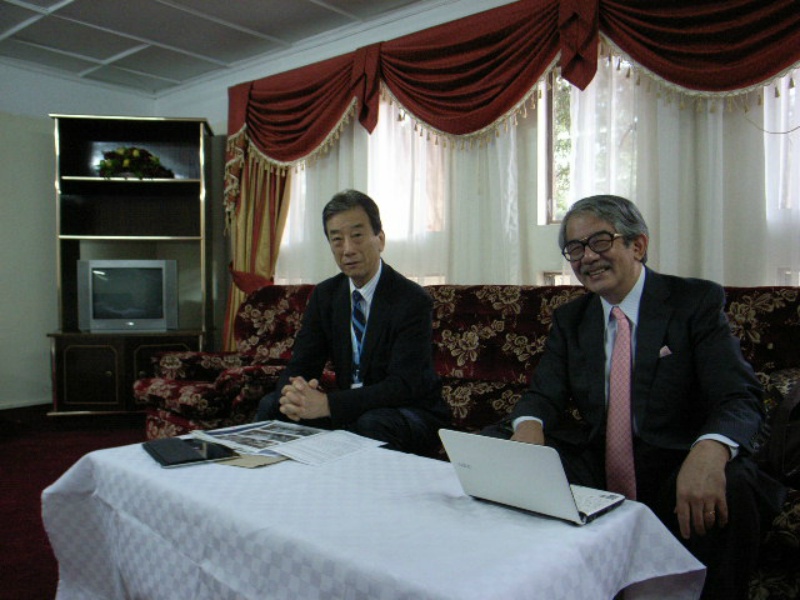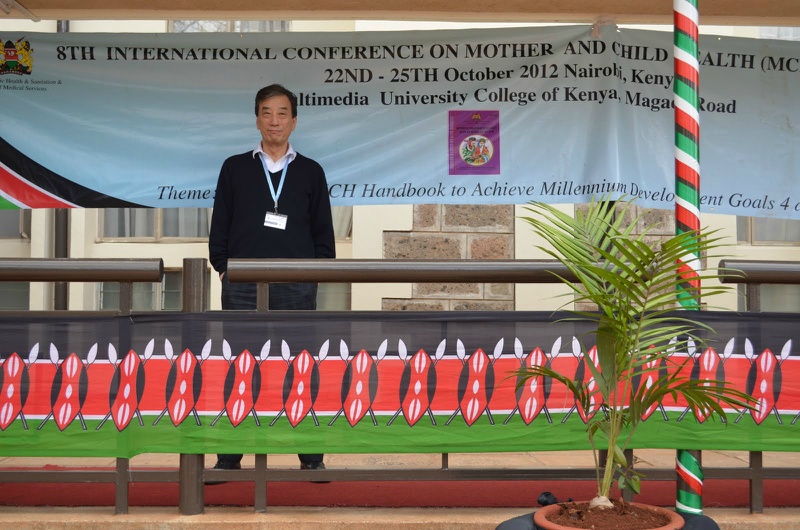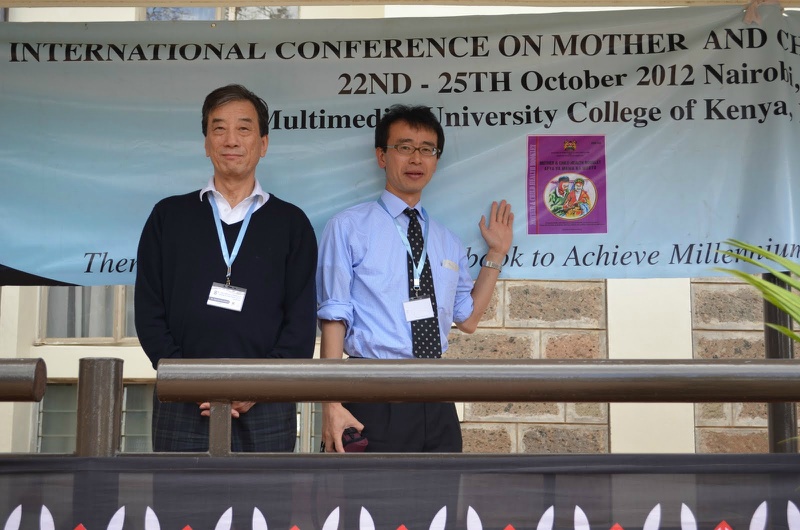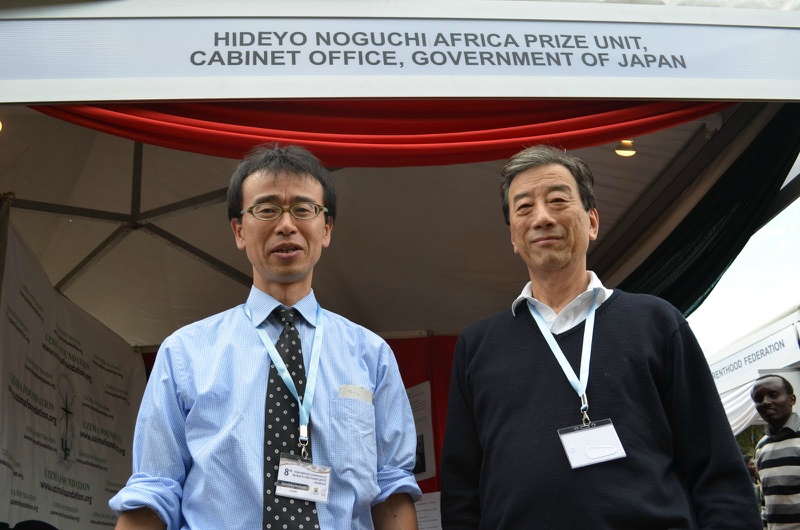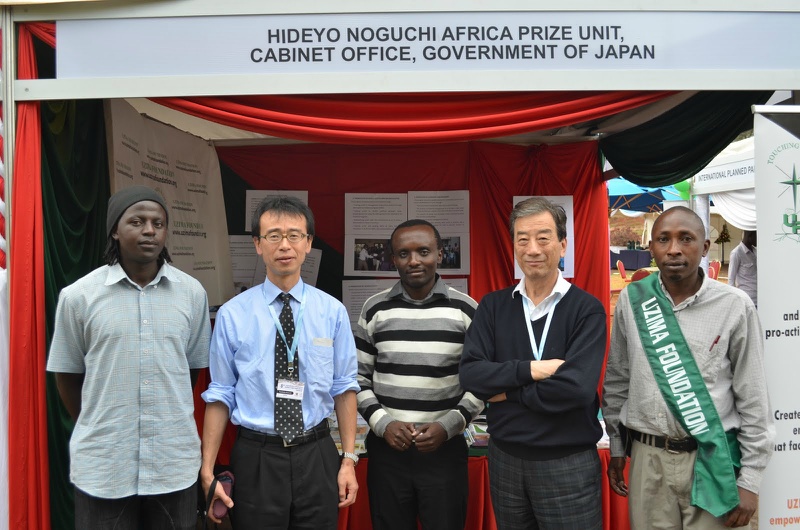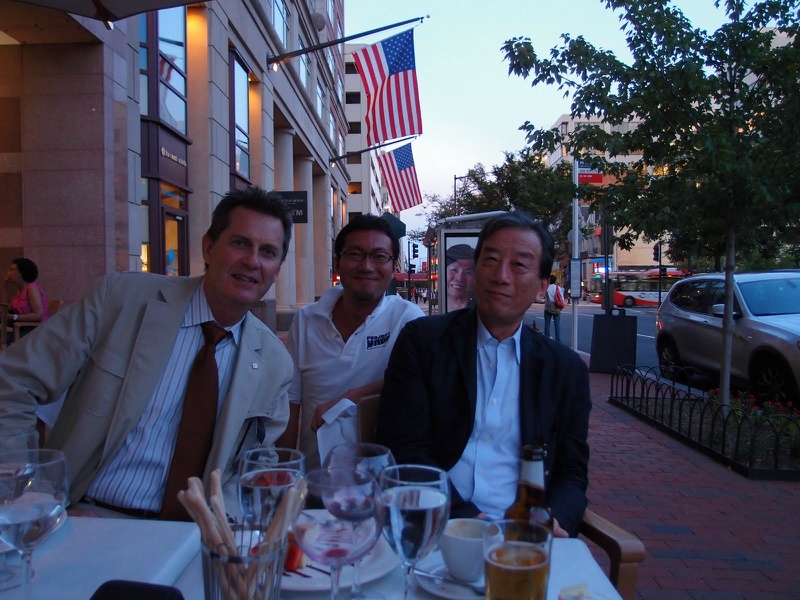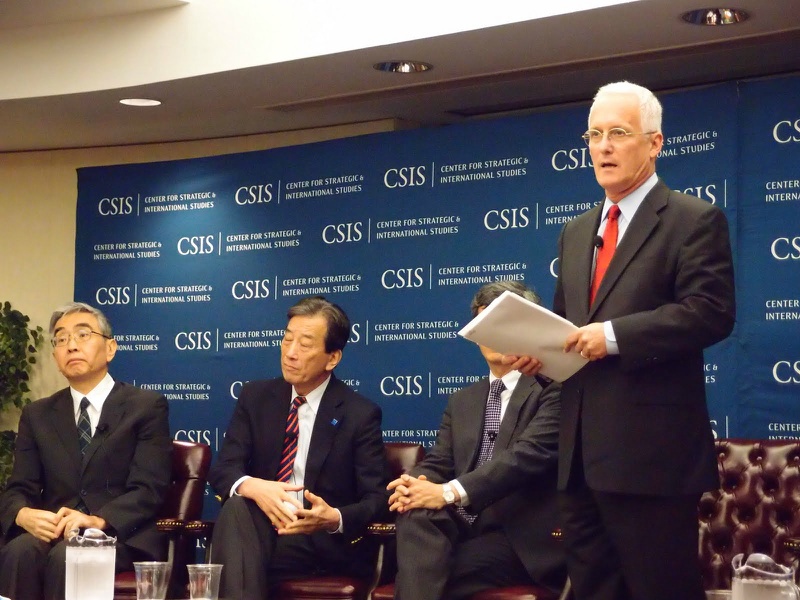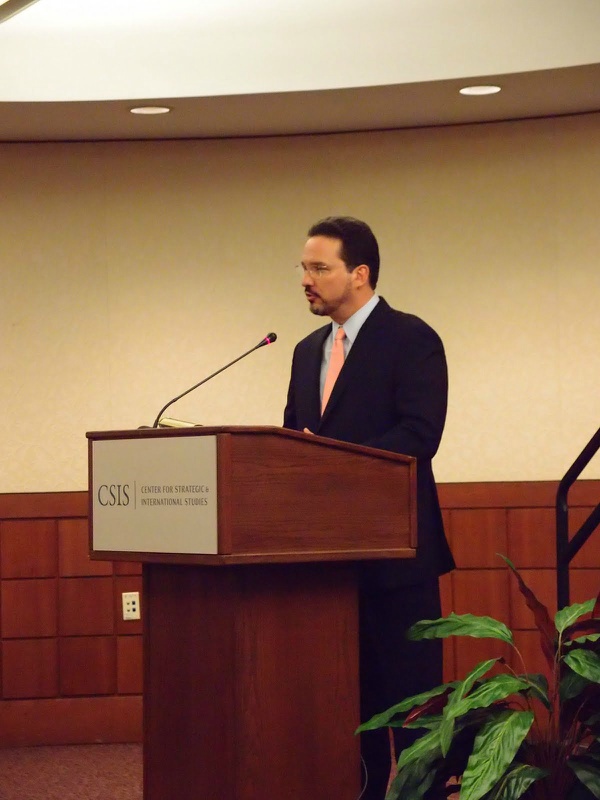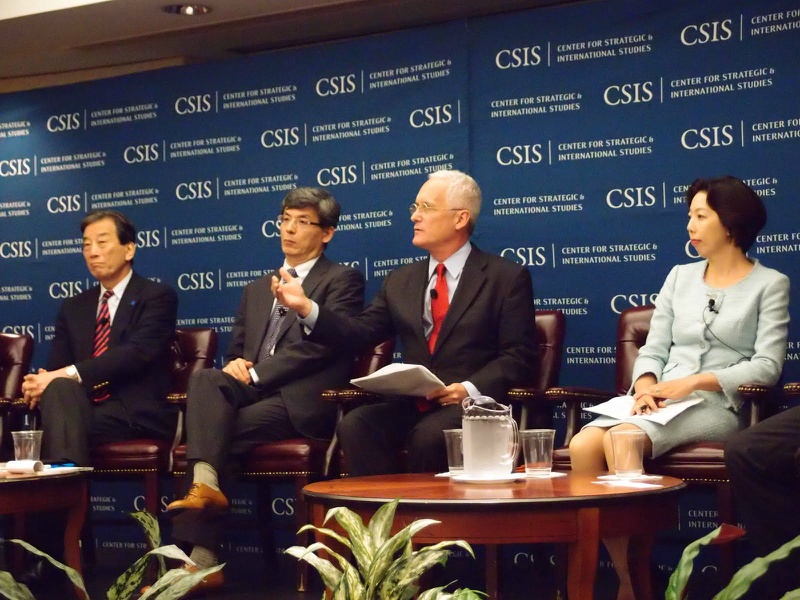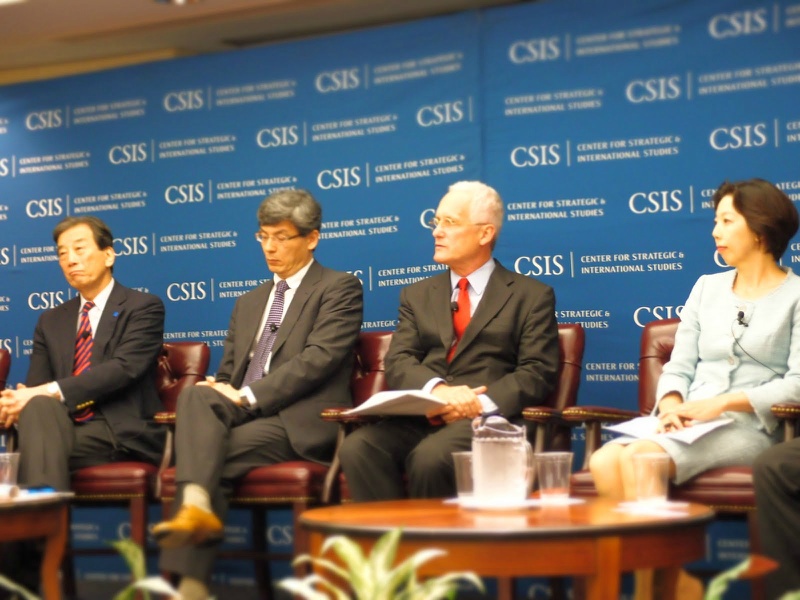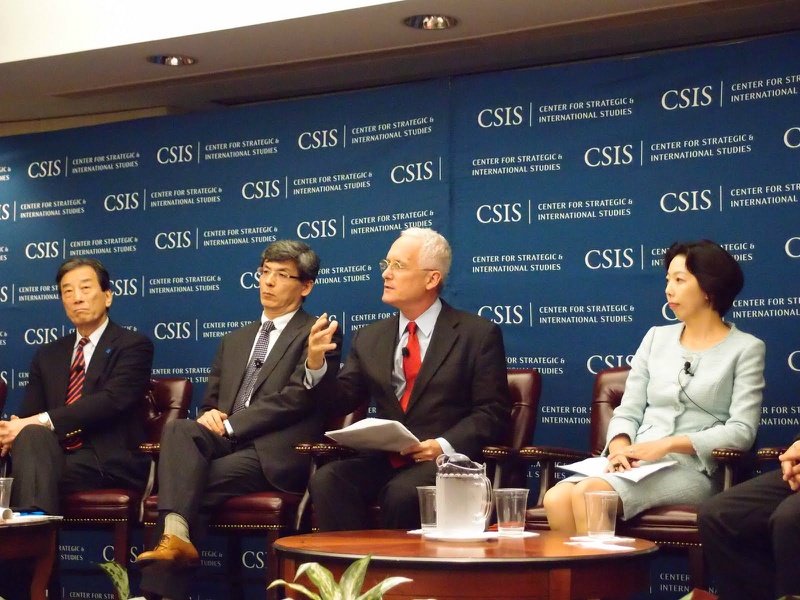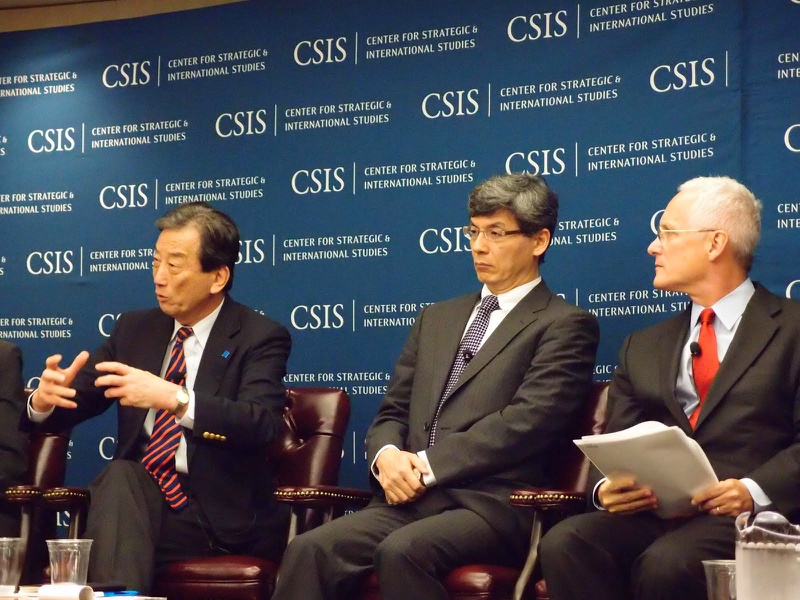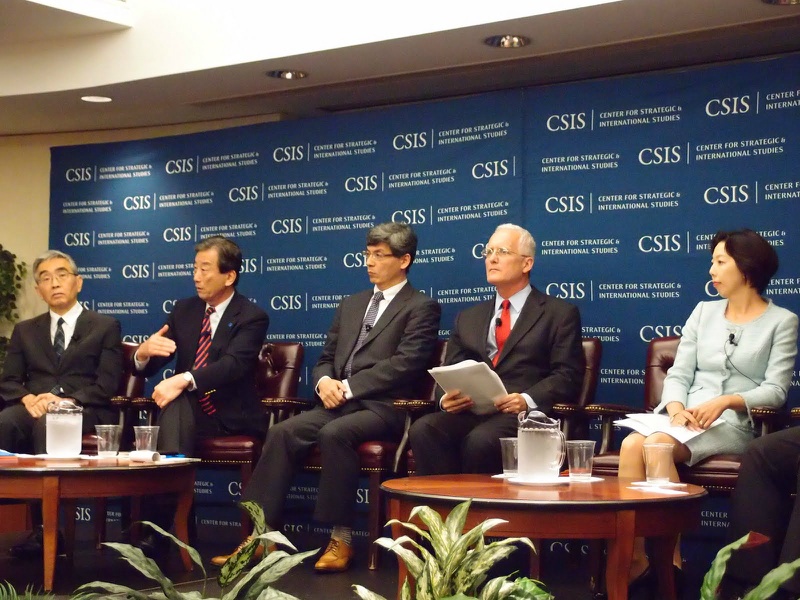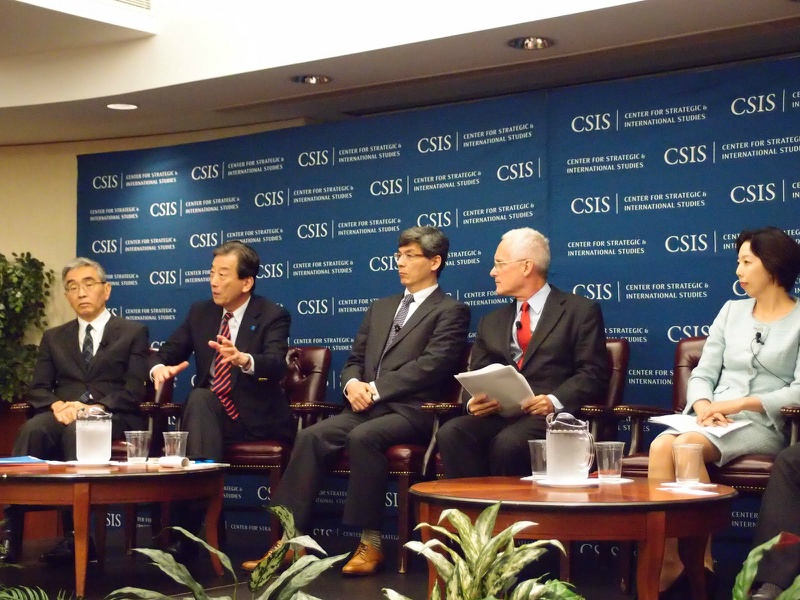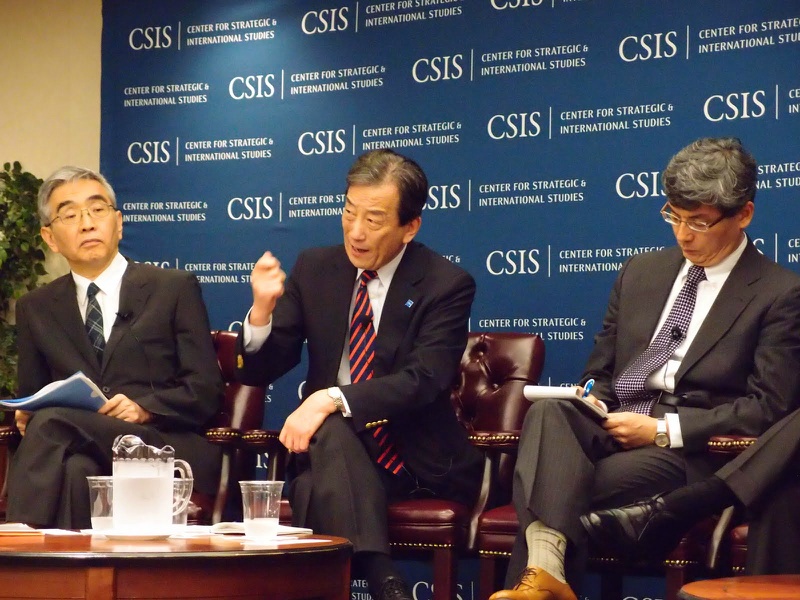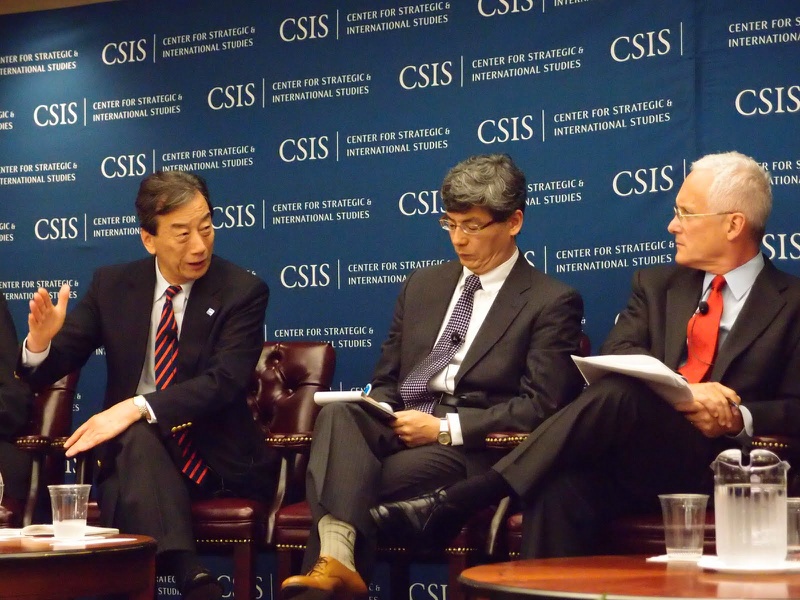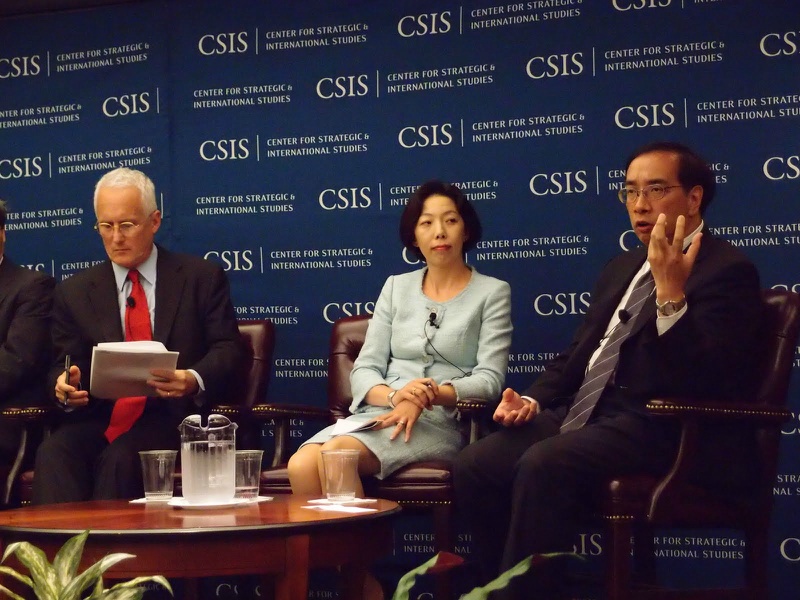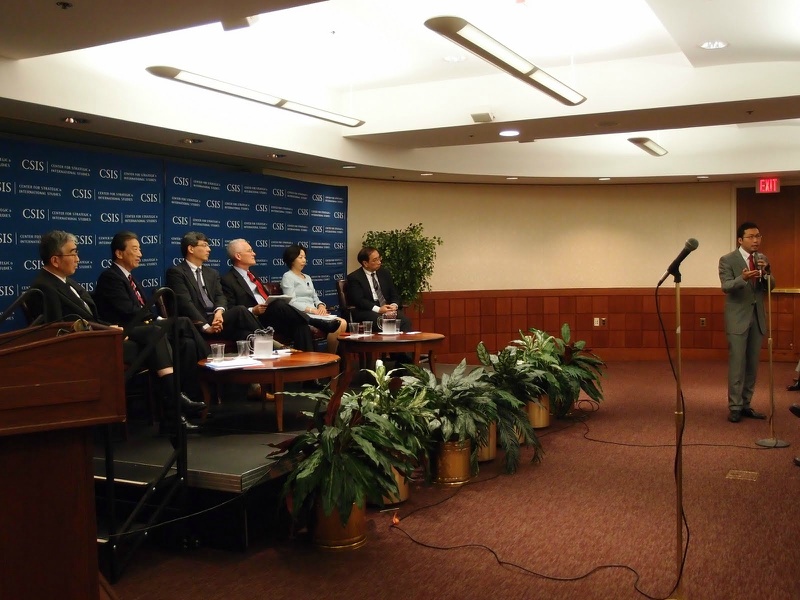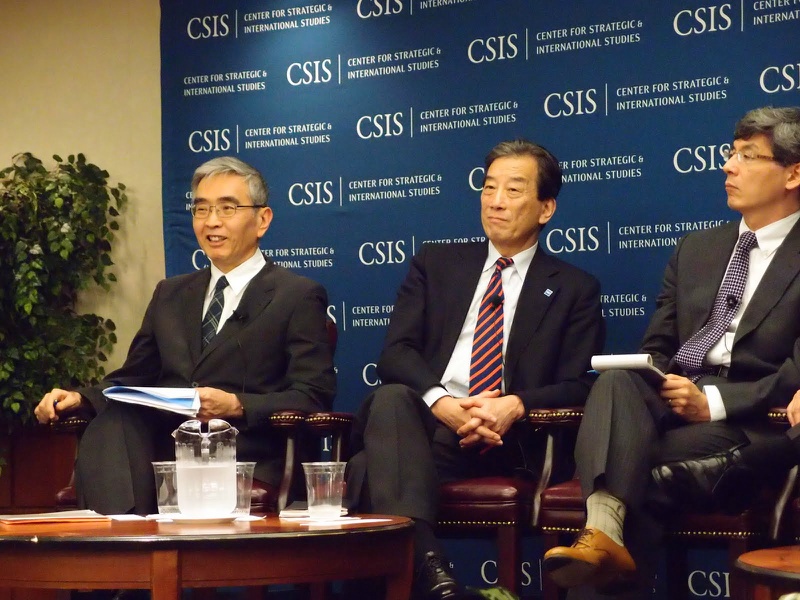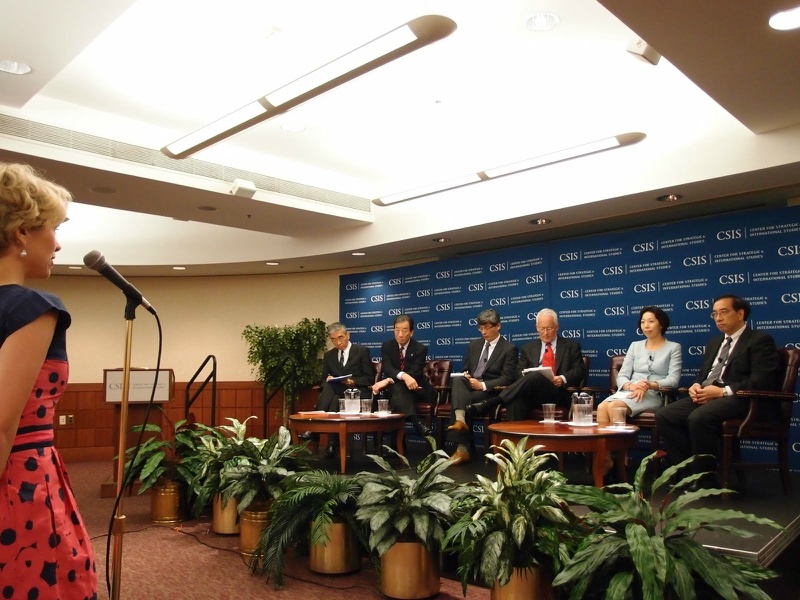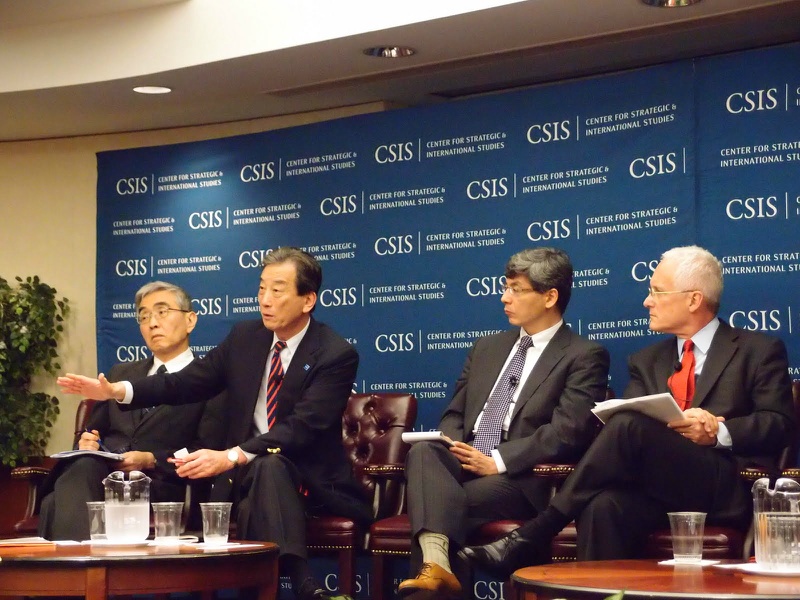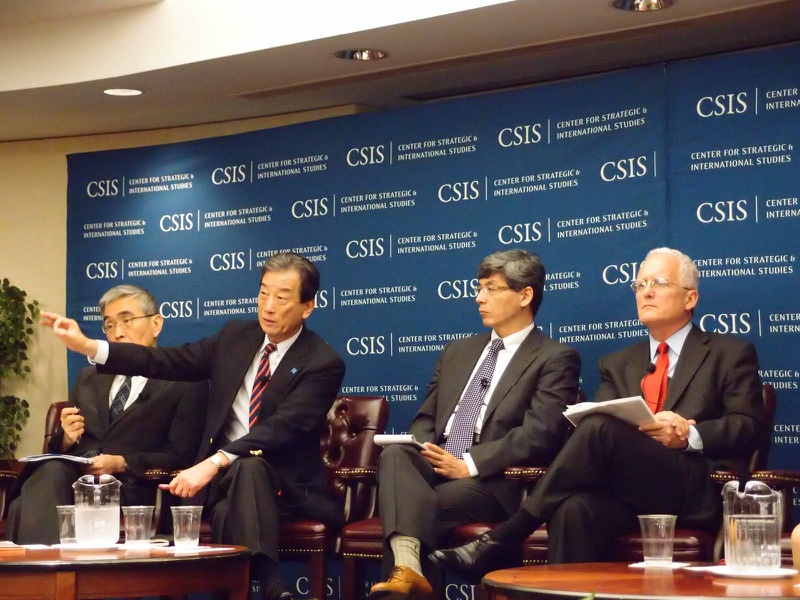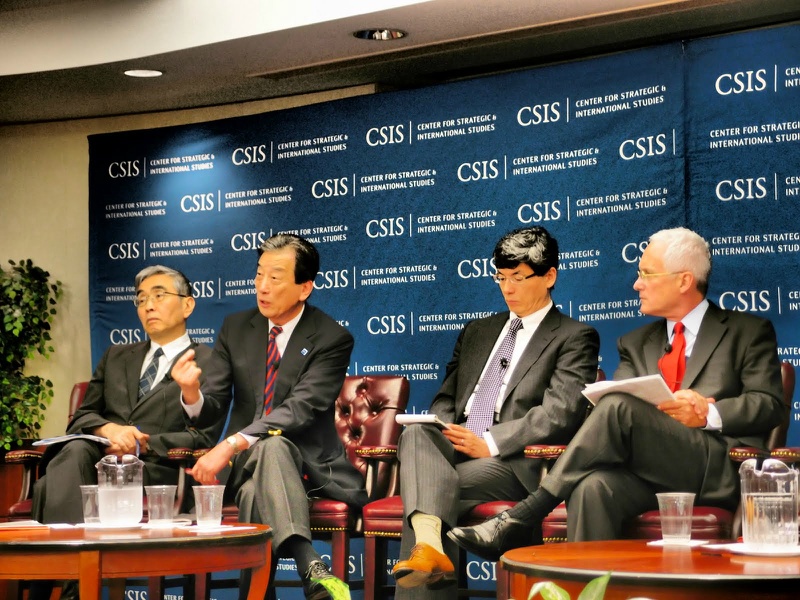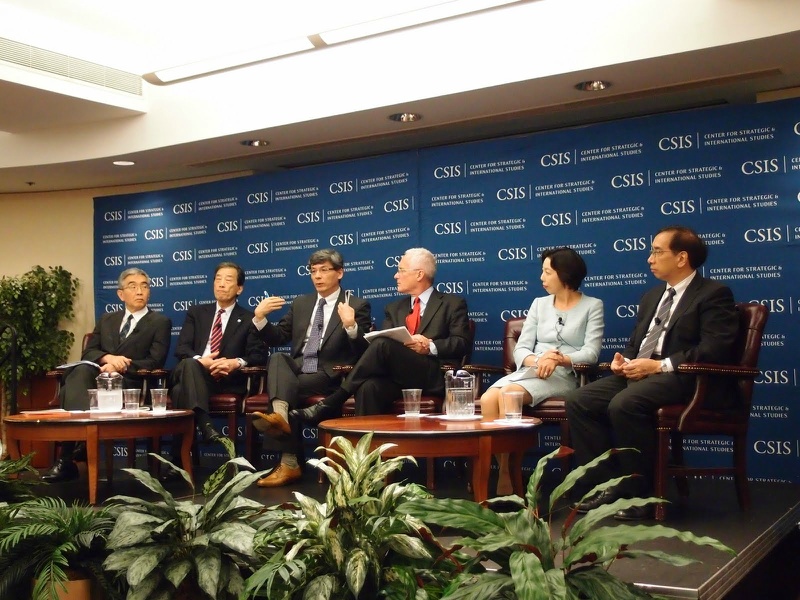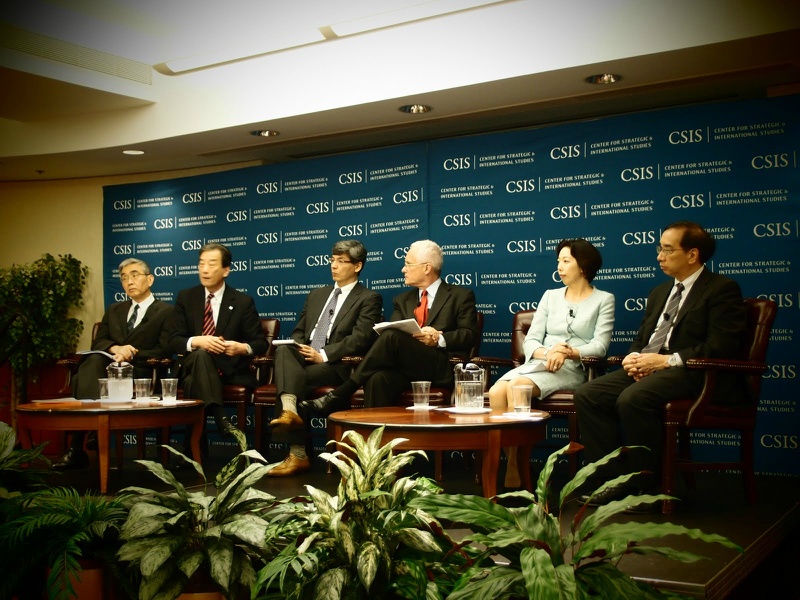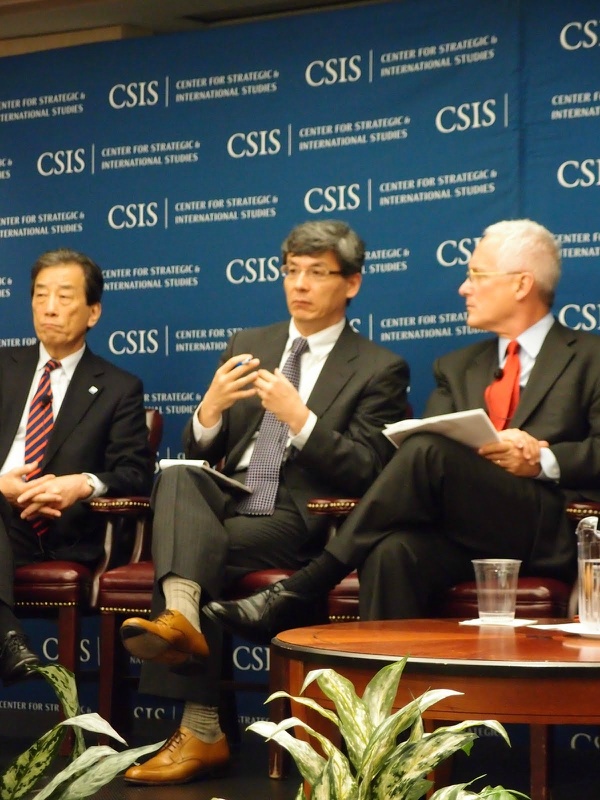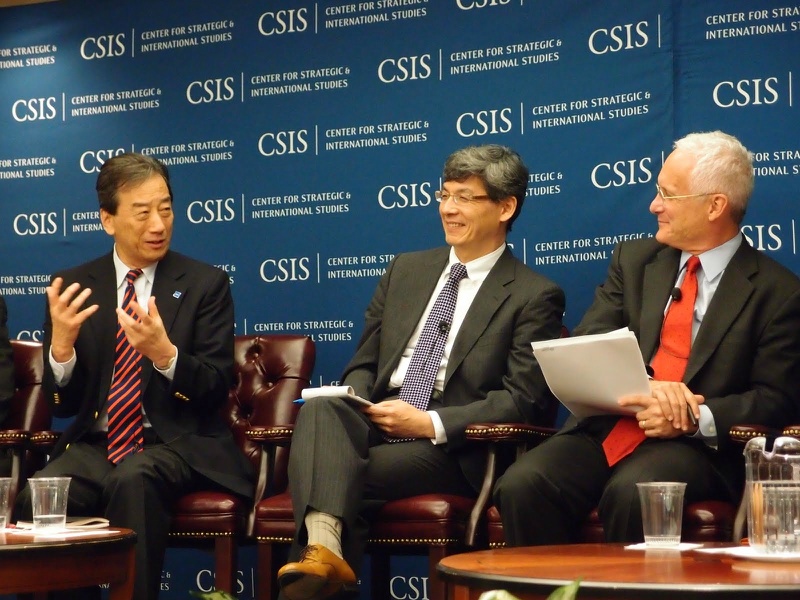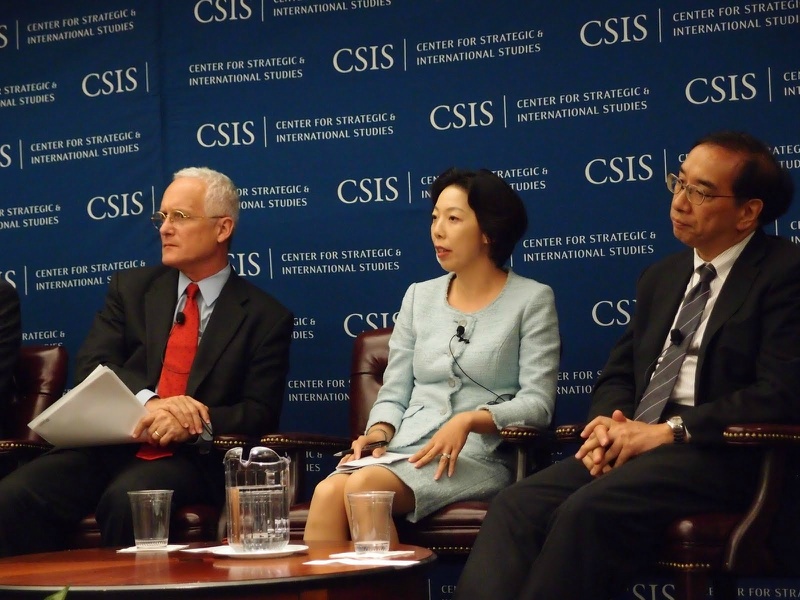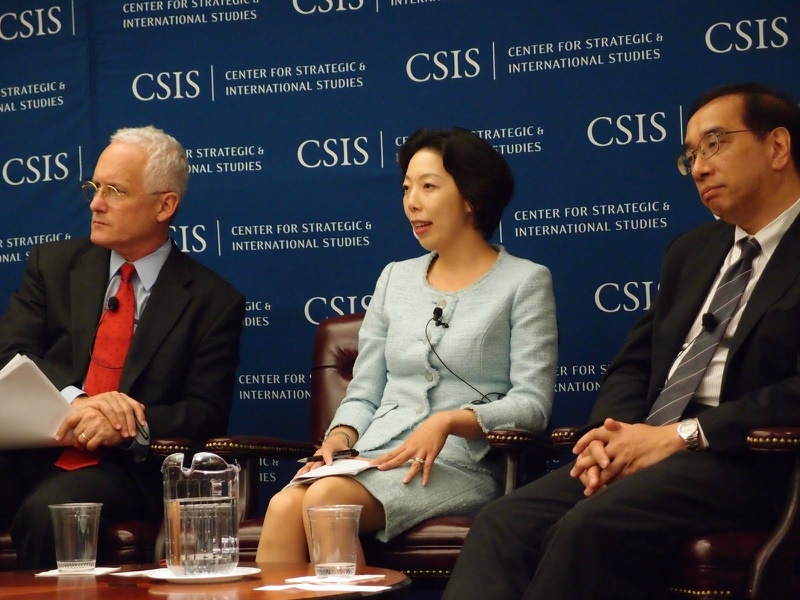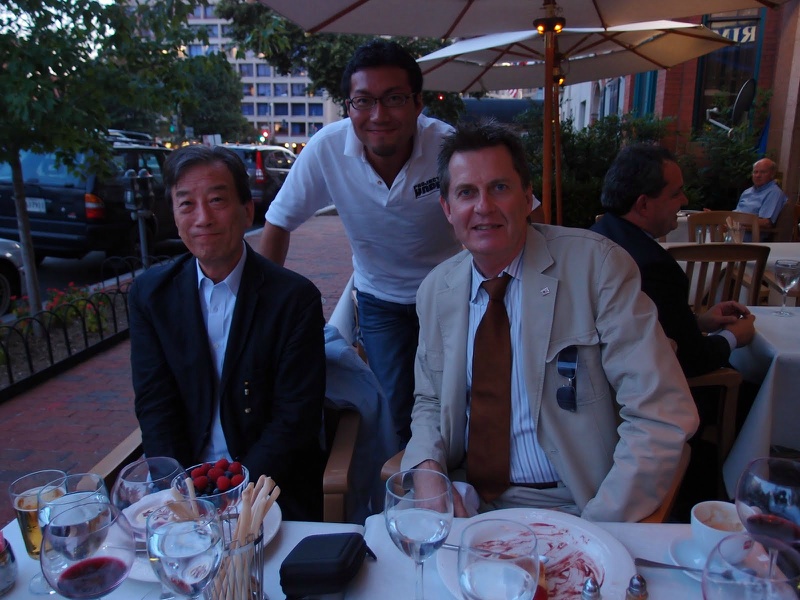A Busy Start to 2017
A slightly late Happy New Year to everyone!
The new year began with holidays until the 3rd, followed by three days (4th~6th)of courtesy calls to all the people I have had the opportunity to work with, and again the weekend from the 7th to the 9th.
Whenever I have such extended periods of rest, I read a lot to pass the time in a meaningful way, but I also ended up becoming a bit tired of resting.
While I was unwinding over the long weekend, the HGPI team was very busy with the pressured stages of drafting a policy proposal to the Government and to further the World Dementia Council Global Team. Inviting guest speakers, greeting colleagues and fellow organizers, constant updating and correspondence regarding progress. One of the team members at HGPI even travelled over the New Year’s holidays, to London and back, in 3 days.
Then, my first seminar of the new year at the HGPI, which has by now become something of an established tradition. I would also like to thank everyone who attended.
Followed by a farewell reception for His Excellency Bruce Miller, the Australian ambassador, and a New Year’s reception at the Canadian Embassy. I was also very fortunate to get tickets to the January Grand Sumo Tournament in between, so fortunate that I went two times!
And then, New Year’s Celebrations at SafeCast. This organization is a peerless example of Citizen Science, a movement that is not only limited to Fukushima, or to Japan, but is spreading across the world at a rapid pace, as people seek more trustworthy sources of information. Even the IAEA is a fan.
I also received a lot of young people who wanted to talk with me to discuss their plans to start something new, and nothing pleases me more than providing the impetus for something ambitious.
And all the while, I wondered what sort of year 2017 will be. A bit worrisome, if the inauguration ceremony of Mr. Trump in the U.S and the rise of ‘post-truth’ is anything to go by.
I am also doing my best recently to be active on Facebook.
So dear friends and readers, I would like to wish you all the best for the year to come and do keep in touch!
The World and Society of Scientists, Conferences in Kyoto and Kobe
On October 4th to 6th, I attended the STS Forum (Science and Technology in Society Forum) in Kyoto, an annual conference of people involved in science and technology related policy-making.
On the evening of October 2nd, it was announced that Dr. Omura was selected for the Nobel Prize.
On the second day, I sat on the panel on education and capacity building in developing countries. The moderator was an old friend, Dr. Zakri (1) the Science Adviser of the Prime Minister of Malaysia. As always, I spoke about the importance of interaction between young people across national borders. There was widespread agreement on this issue and many of the speakers referred to my points. My paper calling for multi-layered international exchanges, “Multilayered Brain Circulation” was also distributed.
On the 6th, I traveled from Kyoto to Kobe to take part in the “Global Forum: Innovation for Ageing Populations” held at the WHO Center located in Kobe. An article by the host, Alex Ross, was published in the Japan Times. I was the moderator of the “High-level Policymaker Panel” held on the second day. The panelists were from Japan, the U.S., Europe, China and American think tanks and they each briefly gave their views, followed by questions from the audience. It was difficult to keep to the time limit of 60 minutes but somehow I was able to facilitate the conversation.
The recent reports by the WHO, U.S., Europe and WEF were also distributed.
I was glad to see a speaker from IDEO, whose engagement seems to be a sign of the times. The panel where Gretchen Addi was a speaker was mostly a chat between panelists who met for the first time but I look forward to following “The Powerful Now”, as well as the “White House Conference on Aging”.
Teach For Japan: Celebrating 4 Years
It has been already four years since the sweltering summer when Yusuke Matsuda was rushing around to get the Teach for Japan project off the ground. We had a small gathering to commemorate this occasion.
I have been a big fan and supporter of Mr Matsuda ever since I found him on Twitter and have always been championing his cause (newspaper article in Japanese).
The venue was not very big nor fancy, and was packed with people, people and more people, all of whom seemed to exude passion. Needless to say, I had been invited, and even made a congratulatory speech. My message, in short, was to explain that it is not the knowledge that is crammed inside your head that is important in life, but instead the intuitive understanding that is born only out of hands-on real experience. I also remarked that maturing as a human being meant that one needed the decisiveness that is required for decision-making.
And Matsuda’s life embodies these principles. After all, what is life but a development of the experiences we had in our childhood, as our curiosity-fueled hunger for information led to serendipitous revelations and firm commitments? It is useless to only think or ponder on this thought. I believe that everything essentially boils down to a mix of real-life experience, serendipitous meetings and bold decisions.
There was also some talk from the Fellow teachers, who related their own experiences at Teach For Japan program, of making the deliberate choice to act, and I can only applaud them. It brought tears to my eyes, as I was overcome with waves of emotion. Professor Seichiro Yonekura, who was sitting beside me, a great champion of innovation and was also a fervent supporter, was also struggling to contain his tears. After all, we human beings cannot stop these spontaneous tears of an outpouring of emotion.
I really wanted people all over Japan to hear them speak. We had three Fellows speaking, one of whom talked about his activities over the past year-and-half. As they talked, their passion was conveyed to us in their words, in the reality that lie behind their stories, and just as they inspired their students who are unfortunate in being made to live in less-privileged conditions, we too were inspired all evening long.
To these wonderful young people, I can only offer my thanks, and share their vision of a brighter future for Japan.
I also thank the school teachers who accepted and have been supporting these Fellows as they work to bring about a change.
Thank you, Mr. Matsuda, and I thank your friends.
And my dear readers, I ask you for your continued support of Teach For Japan!
Interview with Dr. Kurokawa, former chair of the National Diet of Japan Fukushima Nuclear Accident Independent Investigation Commission (Tokyo-shinbun 2012/11/8)
Why is the ‘Nuclear Village’ being revived? According to Dr. Kurokawa, professor at the National Graduate Institute for Policy Studies and the former chair of the National Diet of Japan Fukushima Nuclear Accident Independent Investigation Commission (NAIIC), “The biggest issue is that due to weak Legislative branch of the Government, the Administrative branch of the Government is not being kept in check.”
“Although it is the job of the Legislative branch of the government to develop policies, the bureaucracy is still doing this. Meanwhile, the Administrative branch by the bureaucracies will not acknowledge that it has made mistakes. In these circumstances, there is no way that policies will change by Ministrial silos, even after the Fukushima accident.”
Dr. Kurokawa takes the view that “when the government, TEPCO, scholars, and the mainstream media colluded and declared that the nuclear plant did not undergo a meltdown, it effectively signalled the “meltdown” of all authority. A country that was supposed to be an economically and technologically advanced was seen as incredibly irresponsible and our nation lost the world’s trust.”
How can this trust be regained? Dr. Kurokawa’s answer is the “strengthening of the functions of the legislative branch,” which specifically means the establishment of independent committees like NAIIC and discussion of important policies by such committees. He explains, “NAIIC is the first case of the legislative branch functioning successfully. Because it was independent from the government and electric power companies, it was able to maintain credibility. When making important decisions, such as how to deal with the problem of spent fuel, such a commission should be established as necessary.”
In its report, NAIIC presented seven recommendations to the National Diet. Regarding the establishment of a new regulatory agency, the report recommends, “the Diet should set up a committee through which the agency will be monitored” and “the agency must have a high level of independence and strong sense of responsibility regarding its duty.” However, Dr. Kurokawa comments, “I can’t say that is taking place right now.”
“The implementations of the recommendations of this Commission will be the first step in making true democracy work in this country. In the next general election, the people must confront candidates as to whether they have the intention of implementing the recommendations.”
Japan Will Sink if It Does Not Change Now (Sankei-shinbun 2012/10/11)
Impact of Public Disclosure
–Both the cabinet and the private sector also set up their own investigation commissions, but the parliamentary panel focused particularly on the following points
“When conducting such an investigation, the investigators’ personal judgments usually have an effect. In order to prevent this as much as possible, the report tried to present only the facts, not the investigators’ personal udgments. The report did not use the phrases “nuclear village” or “safety myth.” If we use those words, readers would generally agree, “yes, that’s right.” We decided to only describe the facts in a straightforward manner.”
–Another major difference from the other commissions is that the committee meetings were made open to the public and the media
“All of the twenty commission meetings with hearings were made open to the public and were broadcast live on the website. Simultaneous English translations were also provided. It is important for the process to be transparent, and we wanted the people to see for themselves how the witnesses responded rather than the commission’s judgements.”
–Although there may have been advantages and disadvantages to public disclosure…
“We requested thirty-eight people to serve as witnesses at the commission hearings and not one declined. As TEPCO is a private company, it was not forced to submit its documents we requested, but if it declined we would only record and state that TEPCO would not release the documents. However, TEPCO ended up allowing us to inspect and view both their documents and the video records of the teleconferences among TEPCO Tokyo headquarter and Fukushima Daiichi Plant Operation Center. Media reacted strongly when the committee disclosed the fact that there was no sound in the (teleconference) footage of when former Prime Minister Kan went into TEPCO headquarters. Later, in the end, TEPCO disclosed their records to the media. Thus, making our committee meetings open to the public was the right decision.”
Checking the Administrative Branch of the Government
–The report condemned the accident as “man-made”
“People in positions of power must act responsibly. What happens when they know but don’t do anything? It became awfully clear in this accident. Nuclear accidents have occurred in the past around the world. In the United States, after the Three Mile accident, an independent investigation report led by Dr Kemeny was released with specific recommendations similar to that of our report. What occurred thirty years ago in the U.S. repeated itself in this country. Japan knew about the Three Mile accident. Even if it did not know, Japan is a highly developed country that is even trying to export nuclear power technology. Knowing about it but not doing little by those responsible positions cannot be called anything other than a man-made disaster.”
–Why did this situation come about?
“During the period when energy shortages were a serious problem, developing nuclear power became a national policy of high priority. However, the bureaucracy only kept pushing the development forward, and there was no effective governance capability to put on the brakes when Japan needed it.”
–Does the problem lie within Japanese society?
“Both major private companies and the bureaucracy in Japan follow the seniority system within the same organization as a life-time employment. Since people are not necessarily chosen for their abilities, the problem arises that people at the higher posts can be incompetent. TEPCO is a company that has a monopoly of energy production and distribution in each regional areas. In such cases, energy companies become easily involved in regional elections and thus, in politics. Collusion became prominent as the direction shifted to everyone promoting nuclear power.”
–Does this mean that politicians are also responsible?
“In Japan, there is no mechanism to keep the Administrative branch of the government in check. The bureaucracy makes and implements almost all of the policies in Japan. So long as the bureaucracy is allowed to create the policies, they will continue to protect their interests and there will be no reason to change. NAIIC is probably the first time that the Legislative branch has functioned successfully.”
Thinking in Black and White Will Not Lead to The Answer
–Can Japanese society and politics change?
“If Japan does not use this commission report and this mechanism as an opportunity to change the governance of the Government, Japan will continue to sink. There is a need to reject the people at the top of public offices and public organizations who are incompetent thus irresponsible. The inclusion of more women, young people, and foreigners will bring about different ways of thinking and governance. Older generations will not produce different ideas and even if they do, they will tend to dismiss the new ideas.”
–The Establishment of the New Nuclear Regulatory Authority
“In our commission’s report, we recommended that regulatory bodies should adhere to the “no return rule” (officials are not allowed to return to their previous governmental agency) and that members should be individuals who intend to make nuclear regulation their careers. More Japanese should undergo training programs abroad. After ten years, they will have an international career and will be respected globally.”
–Should Japan continue to keep its nuclear power plants?
“It is necessary to think critically and to be aware of the changes in the world. Choosing between black or white, yes or no, is not the solution. We must take into account the history of the Three Power Source Development Laws (Dengen-Sanpo; the granting of subsidies to municipalities that allow the building of nuclear power plant sites). Change may not occur immediately, and there needs to be more discussion.”
Profile: Kiyoshi Kurokawa. Professor at the National Graduate Institute for Policy Studies. Born September 11, 1936. After graduating from the University of Tokyo Faculty of Medicine, he moved to the United States in 1969 and was a research assistant at the Department of Medicine, University of Pennsylvania School of Medicine. In 1979, he became professor of Medicine at Department of Medicine, University of California Los Angeles (UCLA) School of Medicine. Returning to Japan in 1983, he became professor at University of Tokyo Faculty of Medicine in 1989, and later Dean of Tokai University School of Medicine, president of the Science Council of Japan, as well as Science Advisor for the Cabinet of Japan under former Prime Minister Shinzo Abe in 2006. This year, he was chair of the National Diet of Japan Fukushima Nuclear Accident Independent Investigation Commission, which investigated the accident at the Fukushima Daiichi Nuclear Power Plant and submitted its report to the National Diet in July, calling the accident “man-made.”
From Nairobi -2: Hideyo Noguchi Africa Prize and Young Japanese Pursuing Career in the World
My second day in Nairobi. There are many young Japanese people out there whose activities are noteworthy. Most of them are involved in work done through JICA; but there are others who work at international organizations or are currently studying abroad. They are involved in regions like Gabon, Congo, Kenya, Burundi, Senegal, and Palestine. Most of them are young women, who have enormous presence and strength of will.
In addition, the efforts of the driving force behind the whole conference: Professor Yasuhide Nakamura of Osaka University and his team of students, Dr. de Los Reyes and doctorate students, as well as the people from HANDS(an organization that was born out of Professor Nakamura's efforts), have ensured the steady spread of their activities to Kenya and Ethiopia.
I also met some young Japanese students who, after studying abroad in America, have moved on to careers which take them to Africa. Indeed, there are a lot of young people who are making a name for themselves.
Yesterday, I was overjoyed to receive the following e-mail from one of the participants whom I had met for the first time.
To Doctor Kiyoshi Kurokawa
I spoke with you at the MCH booklet conference today and am currently enrolled in a Masters course at the UCLA School of Public Health. I have been in Kenya for the past two months.
Dr. Kurokawa's messages, like "challenge your self across disciplines and national borders, and meet different people", "turn your efforts towards the world" inspired me when I was still a medical student. I went on to extern in US at an hospital, take courses for two months at a medical school in Canada, and also extern at a clinic set up by a NGO in East Timor. I recall now that I although I was not fluent in English, I was very adventurous and I can only describe it as my being excited at being able to turn my efforts towards the world. I remember reading your inspiring words sent to students of Tokai University, and I also enjoyed reading the diaries of students of my age of Tokai University doing externs in US medical center.
After graduating, I received training at Okinawa Prefectural Chubu Hospital, after which I went to a small island called Kumejima off the Okinawan coast where I gained clinical experience. Here I was shocked and surprised at the fact that health disparity exists even within Japan, and this translated into a desire to learn more about social determinants of health, community empowerment, social capacity building, which
led me to UCLA where I enrolled in Community Health Sciences, all of which have led to my being in Kenya.
Of course I had no way of knowing that things would turn out this way, of determining my course with big dreams and ambitions. But as I made decisions at each turning point in my life, often choosing something that interested me, I find myself quite far away from home. I believe that my course in life was a result of my having learnt during my student years the joy of meeting different people and constantly being challenged.
During this stay at Kenya as well, I have had the opportunity to visit the home of one of my classmates at UCLA who comes from a small town in the country. She suggested I go to her house, and I decided to
accept, and that is why I found myself on a crowded minibus known locally as a ‘matatu’ headed to my friend's house. Although they were not wealthy, they welcomed me with open arms and gave me love and affection, and when the time came to part ways, I found tears rolling down my cheeks.
The world is wide, yet is somehow similar.
My challenges and worries have not ended. I am still searching for a way in which to use what I have learnt.
I would like to express my appreciation for your inspiring words which have given me the strength to push on, and I am eagerly looking forward to more.
In the evening, we had special sessions for the Hideyo Noguchi Africa Prize (1, 2). The program started off with a 'kamishibai' play about Hideyo Noguchi by a young man and woman from the UZIMA Foundation, an organization set up by Dr. Were. This was followed by an overview of the Hideyo Noguchi Africa Prize using video images, an address by me as the chairperson, video footage of Miriam Were from Kenya, one of inaugural laureates of the prize at the TICAD4 held in Yokohama, a testimony by Tomohiko Sugishita, a surgeon who has been working in Africa for more than 10 years after being influenced by Hideyo Noguchi in his younger years and also his current study under Dr. Were and the moving story involved; the session was wrapped up by a passionate speech by Dr. Were.
The evening ended with a reception. Mr. Yoichiro Yamada, Deputy Chief of Mission of Japanese Embassy in Kenya also attended. Everybody danced together, and we spent a very enjoyable time.
Education which leads to young confident people who are making a difference in the world through their activities is a priority, and such young people are creating a foundation of trust across nations.
Discussions with CSIS in Washington DC – 2
A public panel discussion was held during my two-days of discussions with CSIS (Ref. 1). The session lasted approximately two hours including greetings from Michael Green, Senior Adviser and Japan Chair, and Kazuhide Ishikawa, Deputy Chief of Mission at the Japanese embassy. You can take a look at what was discussed in this video (which is admittedly a little long).
I must admit that this panel discussion made me reflect on the fact that despite all my years of study of English, I still have a huge room for improvement before I will feel fairly comfortable participating in this type of debate in English.
We were able to establish relationships with such internationally well known ‘Think Tanks’ like the CSIS due to the help, support and assistance of many individuals in our Health and Global Policy Institute (HGPI). I would like to take this opportunity to thank all of you.
After the end of our meetings on the second day, I enjoyed a lovely Italian meal with Fred Garber of Project Hope and Mr. Noritake of HGPI (photos above).
I would also like to take this opportunity to ask you, visitors to my website for your support so that we can create a Japan that is a responsible international partner.
What Can Be Done to Recover Trust in Japan After 3.11: Presentation at the Japan National Press Club
Japan National Press Club regularly holds lectures welcoming various guests. Recent example is Senator Daniel Inouye, a big figure at the US Congress. His lecture is posted on this web site, also.
I was invited to give a lecture here at May 20th. My handout was the material which I used at the gathering of the legislators of the Democratic Party the day before (this meeting was open to media…). The excerpt of my speech is shown here.
I talked conservatively and mildly as I understood that this lecture would be broadcasted On-line.
However, at the following Q&A session, since the audience was mostly journalists, I naturally was somewhat acquainted with them, and they in turn was familiar with my backgrounds, so I felt that many questions reflected such backgrounds.
I do, however, kept my straight open style here and there, so if you are interested, please watch the video.
Mr. Koiwai was present at the lecture and he posted an article of the summary of my presentation on the Science Portal,http://scienceportal.jp/highlight/2011/110603.html (in Japanese). Mr. Koiwai kindly points out that I am including media in my target of criticism. I repeatedly speak and write so in many occasions (Ref.1 in Japanese) (Ref.2,3 in English), too.
Mr Makino, a journalist who calls himself “Stimulator of the Era (Jidai Shigeki-bito)”, also showed up at the lecture (I see him at many occasions…) He posted a column on his blog by the title of “A Last Chance for Japan to Recover From Mistrust On Nuclear Power Plant Breakdown at the G8 Summit”.
I see some moves among the legislators towards realization similar to my recommendations which, hopefully, they find useful. Now is also a good opportunity to structure healthy relations between the legislature arm and the administrative arm of the Government of Japan.
Joi Ito Appointed to the Director of the MIT Media Lab: Change Japan!
MIT is one of the top universities of the world, internationally known, a dream for youths. In this prestigious university, there is a well known lab called the Media Lab, and it happens that they selected as their next director Joichi Ito (44 years old, more popular as ‘Joi’) (Ref.1,2) (Ref.2 is in Japanese), a Japanese more famous in the world rather than in Japan.
He had been sending out tremendous volume of information, views, opinion for these two decades. Please visit his blog (the link is in my Blogroll, too) and you will see his high ambitions and determinations in assuming the directorship.
Joi and I have been in touch with each other for about a decade or so. I have been introducing him to you from the early stage of my web site. We share the idea of ‘Ozumo-nization of universities’, and I think it was around the time of Koizumi administration in 2006; this idea was printed in a major media in Japan for the first time in the Nikkei newspaper (in Japanese), and Joi Ito introduced it for the first time in the English media, if I remember correctly.
Joi, myself, and many of my friends, have built careers which are rather ‘outside’ of the Japanese society. I am happy that I was able to support him a bit this time.
I think that after the ‘3.11’, the strength and weakness of Japan (Ref.1,2) unveiled itself clearly to the public. To put it shortly, they are the weakness of ‘vertical society’, the weakness of ‘life long employment, hierarchy of the seniority based and men centered society”. I have been pointing out this theme again and again in this site and elsewhere.
However, I am pleased to witness a series of events that break many of such ‘Japanese common sense’ happening recently. Actually, what is happening are nothing impressive in other parts of the world. Good Things. It seems that after all we need a push from ‘outside’ to change.
Joi, in his youth, used to be a ‘very curious’ student who loved to ask questions to his teachers. He left Chicago university when he was a sophomore, did not earn any degrees, Bachelor, Master, nor Doctor ? a complete ‘out of a box’ type if judged by average Japanese (or even US) standard. However, the whole world recognizes his outstanding talent. The decision of MIT to welcome him as the Director is also extraordinary.
By the way, has any of the Japanese major media covered this news? For what purpose, I wonder?
Come to think of it, neither Bill Gates of Microsoft nor Mark Zuckerberg of FaceBook finished Harvard University. Steve Jobs of Apple left University because he was unable to afford the tuition. They are exceptional examples, though.
Students are expected to study hard at university. However, it is not good to say ‘if you do not succeed in job hunting by your senior year, you are a drop out…’ because such idea is a sheer nonsense outside of Japan.

